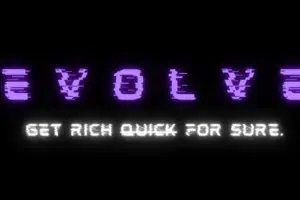Spencer Pawliw – Evolve – updated (till Nov 2025)
$1,800.00 Original price was: $1,800.00.$150.00Current price is: $150.00.
Spencer Pawliw – Evolve – A Deep Exploration of His Vision, Framework, and Transformational Influence (Updated to Nov 2025)
Introduction
In a world where personal development, leadership clarity, and professional fulfillment are more crucial than ever, certain voices rise above the noise. Among them stands Spencer Pawliw, whose Evolve initiative has come to symbolize not only a blueprint for self-advancement but a holistic movement grounded in authenticity, psychology, strategy, and lived experience.
This article explores the depth of his work, the philosophy behind his evolving framework, the impact it has generated, and why it continues to resonate so strongly across industries and communities in 2025.
The Origin of a Philosophy Rooted in Transformation
A Vision Born from Observing Human Potential
Spencer’s developmental philosophy did not emerge from theory alone; rather, it evolved through years of observing what separates those who stagnate from those who thrive. Across coaching environments, leadership spheres, and personal interactions, he recognized patterns—habits that elevate and habits that hinder.
His Evolve framework grew from a central realization:
Most people are not lacking talent; they are lacking clarity, direction, and internal alignment.
Identifying the Gap
Rather than focusing solely on motivation, which often fades, Spencer built his approach around structural transformation. He studied:
How individuals form resilient identities
How emotional patterns shape decision-making
How belief systems influence long-term behavior
How strategic thinking amplifies personal success
The Evolve initiative was designed to bring these insights into a coherent, practical structure accessible to anyone seeking meaningful change.
Core Principles Guiding the Evolve Framework
1. Awareness Before Action
Spencer’s methodology emphasizes that action without awareness leads to cycles of frustration. Before individuals can move forward, they must understand:
What drives them
What limits them
What energizes them
What drains them
Through introspective exercises, diagnostic tools, and guided self-analysis, Evolve helps people uncover powerful truths about themselves—truths often buried by routine, stress, or external pressure.
2. Rewriting Internal Narratives
A significant portion of Spencer’s philosophy centers on the stories people tell themselves. These internal narratives can either liberate or imprison.
Evolve encourages individuals to challenge long-held beliefs such as:
“I am not ready.”
“Success is for other people.”
“Failure defines me.”
By reshaping these narratives, people gain permission to operate at a higher level of capability and confidence.
3. Conscious Habit Architecture
Habits form the backbone of identity. Instead of forcing unrealistic routines, Spencer emphasizes habit architecture driven by human behavior science:
Micro-habits that compound over time
Identity-aligned routines
Habit stacking for easier integration
Systems over raw willpower
This approach makes change not only possible, but sustainable.
4. Strategic Goal Alignment
Evolve reframes the traditional approach to goals. Instead of setting vague aspirations, participants craft:
Priority-focused objectives
Vision-driven timelines
Value-aligned pathways
Metrics that measure true progress
This makes goals motivating rather than burdensome.
5. Resilience as a Skill, Not a Trait
Rather than viewing resilience as something people either have or lack, Spencer treats it as a trainable skill. Through mindset conditioning, emotional processing, and structured reflection, participants build the capacity to withstand challenges without compromising progress.
The Psychological Foundations Behind the Evolve Philosophy
Cognitive Awareness & Pattern Recognition
Spencer incorporates elements of cognitive psychology to help individuals recognize thinking patterns—biases, distortions, and defaults—that shape outcomes.
Evolve teaches people how to:
Detect unproductive brain loops
Interrupt self-defeating thoughts
Replace automatic reactions with intentional choices
Identity-Level Behavior Change
Drawing from identity theory, Spencer argues that the most profound change emerges not from altering behaviors but from shifting one’s sense of self.
When identity transforms, behavior naturally follows.
Emotional Energy Management
Emotional regulation is another cornerstone of the Evolve process. The framework guides individuals in:
Understanding emotional triggers
Expressing emotions without suppression
Managing stress cycles
Using emotional states as information rather than obstacles
Neuroplasticity and the Power of Repetition
Acknowledging that the brain is malleable, Evolve leverages repetition, visualization, and practical application to rewire neural pathways for stronger confidence, focus, and resilience.
The Structural Components of the Evolve Process
Phase 1: Grounding
Participants begin by establishing a foundation—understanding where they are, how they operate, and what internal structures influence them. This phase builds clarity, emotional awareness, and an honest snapshot of personal or professional life.
Phase 2: Unlearning
To evolve, individuals often need to detach from outdated patterns. This includes:
Releasing limiting beliefs
Letting go of self-imposed constraints
Identifying environmental influences
Breaking unhealthy loops
Phase 3: Strategic Reconstruction
This stage focuses on building new systems:
Routines that match energy levels
Optimized planning structures
Goal frameworks that inspire follow-through
Workflows aligned with personal strengths
Phase 4: Execution and Momentum
Once the foundation and systems are in place, execution becomes more effortless. Spencer emphasizes momentum—small wins that build confidence and accelerate progress.
Phase 5: Integration and Expansion
The final phase ensures long-term sustainability. Individuals learn to integrate new behaviors into daily life and continuously build upon their evolving identity.
Leadership Development Through the Evolve Lens
Modern Leadership in a Changing Landscape
The demands of leadership have changed dramatically by 2025. Leaders must now balance:
Emotional intelligence
Agile decision-making
People-first communication
Boundary-setting
Adaptability under pressure
Evolve provides leaders with the tools to operate effectively in this evolving environment.
Authentic Leadership
Spencer promotes authenticity as a leadership superpower. People follow leaders they trust—not leaders who perform. The framework emphasizes:
Transparent communication
Values-driven decision-making
Vulnerability as strength
Responsibility over control
High-Performance Team Building
Leaders who apply the Evolve principles learn to create teams grounded in trust, clarity, and accountability.
The Broader Impact of the Evolve Approach
Transforming Work Cultures
Organizations that adopt Evolve-driven strategies notice improvements in:
Employee engagement
Collaboration
Confidence
Productivity
Overall morale
Empowering Individuals Across Life Stages
Evolve is not designed for a single demographic—it applies equally to:
Students developing identity
Professionals seeking career direction
Entrepreneurs building resilience
Leaders optimizing performance
Individuals navigating transition
A Movement Rooted in Human Potential
By 2025, Evolve has become more than a framework—it is a movement encouraging people to live with intention, clarity, and purpose.
Why the Evolve Philosophy Continues to Grow
Several factors contribute to the continued relevance and popularity of the philosophy:
It is flexible enough to be personalized.
It is grounded in science and human psychology.
It is practical and actionable.
It addresses both mindset and strategy.
It speaks to the modern challenges of identity and purpose.
Most importantly, it empowers individuals to take ownership of their own evolution.
Conclusion
The legacy of Spencer Pawliw – Evolve – lies in its profound simplicity: real transformation begins internally but must be paired with intentional action and sustainable systems. His framework continues to stand out in 2025 because it bridges the gap between personal development and practical execution—between who people are and who they are capable of becoming.
In a fast-changing world demanding adaptability, resilience, and clarity, this philosophy remains an essential guide for anyone committed to growth.













